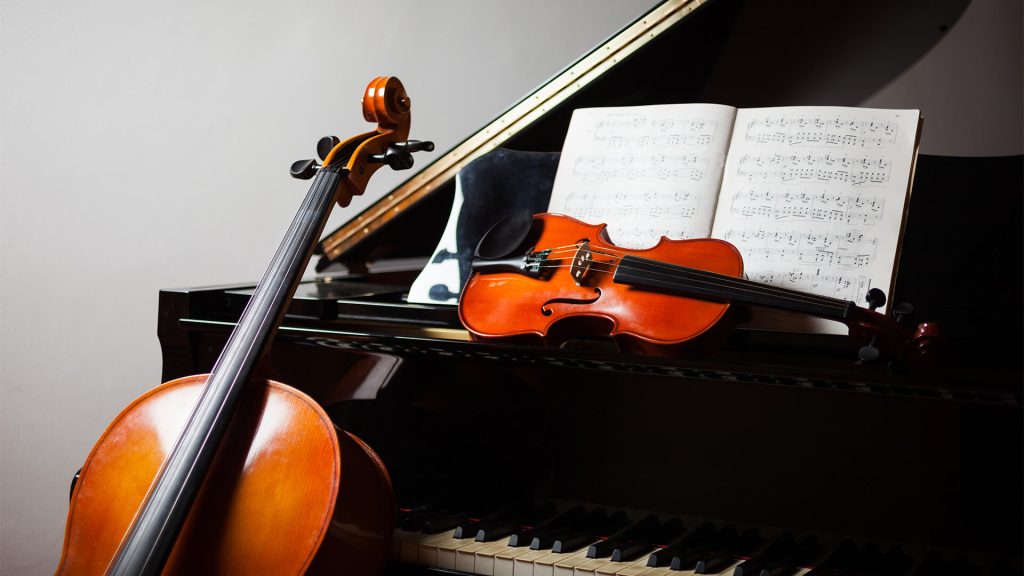Blog
“The Ultimate Guide to Learning a New Instrument as an Adult”
Learning a new instrument as an adult can seem like a daunting challenge, but it’s a rewarding and fulfilling experience. Whether you’ve always dreamed of playing the piano, guitar, or violin, or you’re simply seeking a new hobby, starting a musical journey as an adult is not only possible but also beneficial for mental and emotional well-being. In this guide, we will explore practical steps, tips, and motivation to help you successfully learn a new instrument, even as an adult.
Why Adults Should Learn a Musical Instrument
There are numerous reasons why learning a musical instrument as an adult is a fantastic idea. Studies show that playing music can improve brain function, boost memory, enhance creativity, and reduce stress. It also offers a sense of accomplishment and pride, especially when you hit milestones like playing your first song or mastering a difficult piece.
Additionally, learning music can help you develop patience, persistence, and discipline—qualities that transfer to other areas of life. Whether for personal satisfaction, professional growth, or social connection, picking up a musical instrument can enrich your life in countless ways.
Step 1: Choose the Right Instrument for You
The first step in your musical journey is deciding which instrument suits your personality, preferences, and lifestyle. Consider the following factors when choosing an instrument:

- Physical Considerations: Some instruments require more physical effort or coordination than others. For example, the violin requires fine motor skills and precise finger placements, while the drums demand strong coordination and rhythm. The piano, on the other hand, is generally easier to learn initially and offers a strong foundation for understanding music theory.
- Budget: Instruments can vary widely in cost. Guitars, keyboards, and ukuleles tend to be more affordable for beginners, while instruments like a grand piano or saxophone may require a higher initial investment. Don’t forget to budget for accessories such as tuners, sheet music, or cases.
- Portability: If you plan to take your instrument on the go, portability may be an important factor. Guitars, ukuleles, and harmonicas are portable, while instruments like pianos and drums require dedicated space at home.
- Interest and Motivation: The most important factor is your passion for the instrument. If you love the sound of a particular instrument, that will keep you motivated through the learning process.
Step 2: Set Realistic Goals and Expectations
As an adult, it’s important to set realistic expectations about your progress. Unlike learning to play as a child, adult learners often have less time to practice due to work, family, or other commitments. Here are some tips to manage your goals effectively:
- Start Small: Begin by setting small, manageable goals like learning basic chords or playing a simple melody. Gradually build up to more complex tasks as you improve.
- Establish a Practice Routine: Consistency is key. Even if you only have 15-30 minutes a day to practice, that regular practice will help you progress. Consider incorporating a specific time for music practice in your daily routine to help maintain momentum.
- Be Patient: Understand that progress may be slow, especially in the beginning. Celebrate small victories, and don’t get discouraged if you don’t master a song immediately.
Step 3: Find a Good Teacher or Online Resource
One of the best ways to accelerate your learning is to seek guidance from a qualified teacher, whether in person or online. A teacher can provide personalized instruction, give you structured lessons, and correct your mistakes, leading to faster improvement.
If taking in-person lessons isn’t an option, there are countless online resources available. Websites, YouTube channels, and mobile apps offer beginner-friendly lessons for virtually any instrument. Here are a few examples:
- YouTube: A treasure trove of free tutorials on every instrument imaginable.
- Apps: Apps like Yousician or Simply Piano offer interactive lessons for various instruments.
- Online Courses: Websites like Skillshare and Udemy offer structured lessons that allow you to progress at your own pace.
Step 4: Practice Mindfully
When learning an instrument, it’s easy to fall into the trap of just going through the motions without actually focusing on improving. Mindful practice is crucial for making real progress.
- Slow Down: If you’re struggling with a section of music, slow down the tempo. Mastering a part at a slower pace helps you build muscle memory and avoid bad habits.
- Focus on Technique: Pay attention to your hand positions, posture, and breathing. Small adjustments can lead to significant improvements in sound and technique.
- Break It Down: If you’re working on a song, break it down into smaller sections and focus on mastering one part before moving on to the next.
Step 5: Join a Community or Group

While learning an instrument can be a solitary activity, it’s also incredibly rewarding to share your progress with others. Joining a community of fellow learners can keep you motivated and inspired.
- Local Music Groups: Look for community music groups or clubs where you can practice with others. This could be a local jam session, choir, or band.
- Online Communities: Online forums, social media groups, and platforms like Reddit offer a space where you can interact with other adult learners and get advice or feedback.
- Friends and Family: Share your progress with friends and family. Playing for others can help build confidence and give you something to look forward to.
Step 6: Overcome Challenges and Stay Motivated
Learning a new instrument comes with its challenges. Here are a few common obstacles and how to overcome them:
- Frustration: If you’re feeling stuck, take a short break, change up your practice routine, or try learning a new song to reignite your interest.
- Time Constraints: If you’re too busy, try shorter practice sessions or incorporate music into your daily routine, such as practicing during your commute or while cooking dinner.
- Self-Doubt: Remember, every musician starts somewhere. Be kind to yourself, and don’t compare your progress to others. Everyone has their own learning curve.
Step 7: Enjoy the Journey
At the end of the day, learning an instrument should be fun and fulfilling. Don’t put too much pressure on yourself to perform at a certain level. Enjoy the process of learning, experimenting with new sounds, and expressing yourself through music. Whether you want to play for personal enjoyment, to impress friends and family, or to perform in front of a crowd, the most important thing is to enjoy the journey.
Conclusion
Learning a new instrument as an adult is an exciting and fulfilling challenge. By choosing the right instrument, setting realistic goals, finding a great teacher or resource, and practicing mindfully, you’ll be well on your way to becoming a proficient musician. Remember that progress takes time, and the key is to stay consistent and motivated. So pick up that guitar, dust off that piano, or grab those drumsticks—your musical adventure awaits!


